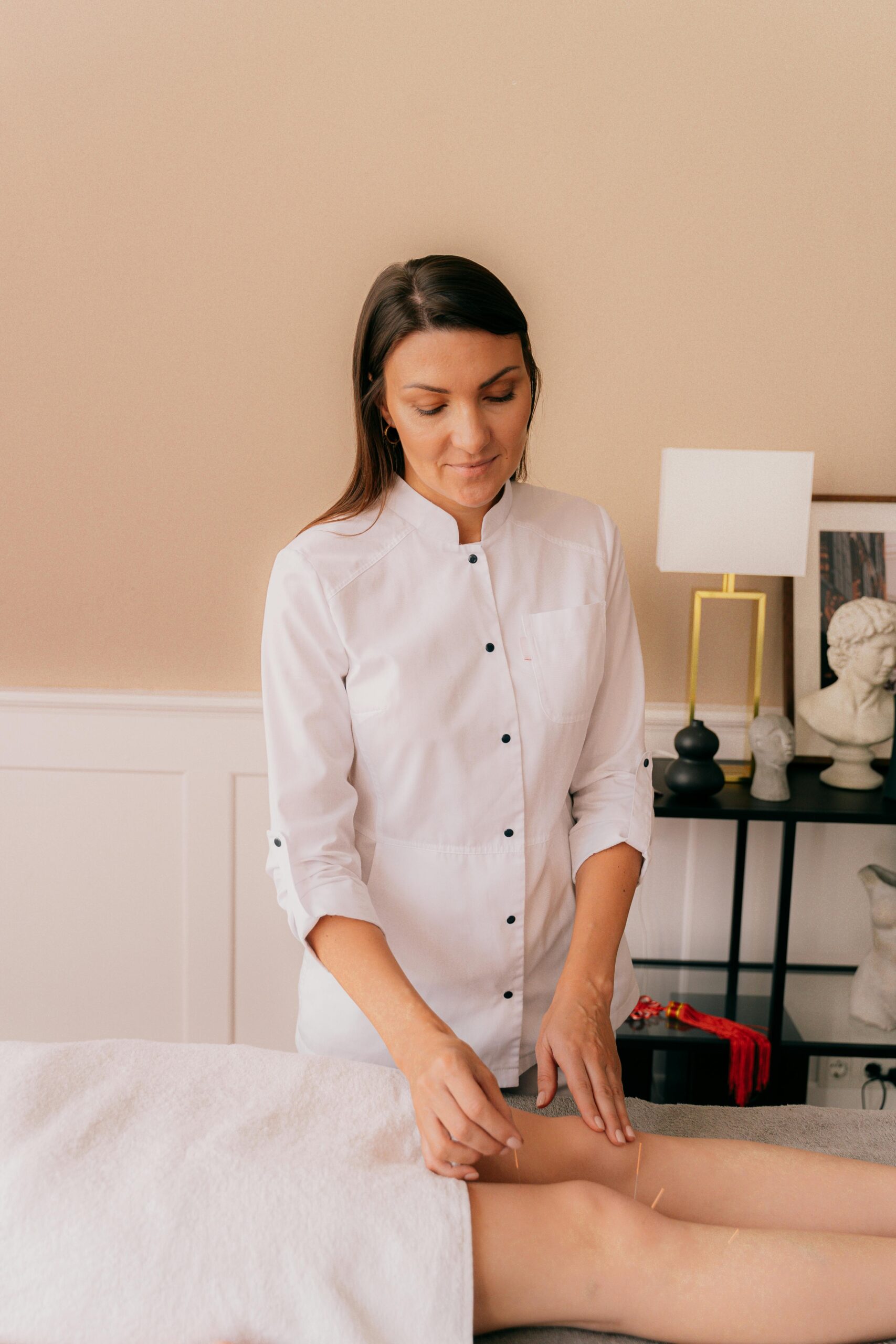
Is Acupuncture Really Painful? Seven Myths Demystified
Is acupuncture painful?
Hey there, beautiful soul! Have you ever considered acupuncture but hesitated because you’re worried it might hurt? You’re not alone! Many people have misconceptions about this ancient practice. Let’s demystify seven common myths about acupuncture with some real-life stories and friendly explanations.
Myth 1: Acupuncture is Painful
Story: Sarah, a first-timer, thought acupuncture would feel like getting multiple shots. She was terrified of the needles and almost canceling her appointment.
Truth: When Sarah finally tries acupuncture, she was surprises. The needles were so thin, she barely felt them. Most people describe the sensation as a tiny pinch or no feeling at all. The needles used in acupuncture are incredibly thin, much thinner than those used for injections. When inserted, you might feel a tiny prick, but it’s nothing like the sensation of a regular needle.
Expanded Explanation: Acupuncture needles are designed to be as painless as possible. They’re solid, not hollow like hypodermic needles, and they taper to a fine point, which reduces discomfort. The insertion is typically shallow, and any sensation is brief and mild. Many people find the experience relaxing and even fall asleep during the session.
Acupuncture benefits: Many find the experience relaxing and even fall asleep during the session. Using acupuncture needles is a gentle way to stimulate your body’s natural healing processes.
Myth 2: Acupuncture is Only for Pain Relief
Story: John believed acupuncture was only for people with chronic pain issues like his friend who had back pain.
Truth (is acupuncture painful?): While acupuncture is excellent for pain relief, it’s also used for a variety of other conditions. Acupuncture can help with stress reduction, improving sleep, boosting your immune system, and even enhancing your mood. It’s a holistic practice that aims to balance your body’s energy, or Qi, for overall wellness.
Expanded Explanation: The benefits of acupuncture extend to treating insomnia, allergies, digestive disorders, and even emotional issues like anxiety and depression. By stimulating specific points on the body, acupuncture can promote natural healing and improve the function of various systems in the body.
Acupuncture benefits: It’s effective for treating anxiety, digestive issues, and even promoting overall well-being. From managing chronic pain to treating irritable bowel syndrome, the scope of acupuncture therapy is vast.
Myth 3: Acupuncture is Not Safe
Story: Lisa worried that the needles used in acupuncture might not be sterile and could cause infections.
Truth: Acupuncturists use sterile needles that are single-use and disposed of after each session. When performed by a licensed and trained practitioner, acupuncture is very safe. Acupuncturists go through extensive training to ensure they know exactly where to place the needles. Plus, they use sterile, single-use needles to prevent any risk of infection. The safety standards are rigorous and closely monitored.
Expanded Explanation: Licensing acupuncturists follow strict guidelines and protocols to maintain hygiene and safety. The risk of infection or complications is extremely low when acupuncture is performed by a traines professional.
Acupuncture session (Is acupuncture painful?): Make sure to visit a licensed acupuncturist to ensure the highest safety standards.
Myth 4: Acupuncture Only Works for Certain Conditions
Story: Mike thought acupuncture was just for people with neck pain or lower back pain.
Truth: Acupuncture is versatile and can be used to treat a wide range of conditions. From chronic low back pain and migraines to digestive issues and anxiety, acupuncture can offer relief. It’s all about restoring balance to your body’s energy, which can positively impact various aspects of your health.
Expanded Explanation: Acupuncture can also be effective for managing symptoms of menopause, aiding in weight loss, and even improving fertility. The holistic approach of acupuncture means it can address multiple issues simultaneously.
Acupuncture treatment: Acupuncture works by stimulating specific acupuncture points to promote healing and improve bodily functions.
Myth 5: You Have to Believe in It for It to Work
Story: Emma was skeptical about acupuncture and thought it wouldn’t work because she didn’t believe in it.
Truth: Acupuncture is not about placebo effects or belief systems. It’s based on principles of traditional Chinese medicine that have been used and refined over millennia. Scientific studies have shown that acupuncture can stimulate the body’s natural healing processes, reduce inflammation, and release endorphins.
Expanded Explanation: Research from reputable institutions like the Mayo Clinic and the Cleveland Clinic supports the efficacy of acupuncture for various conditions. Studies have demonstrated that acupuncture can lead to measurable changes in the body, such as increased blood flow and the release of pain-relieving chemicals.
Mayo Clinic: Institutions like the Mayo Clinic recognize the effectiveness of acupuncture for various conditions.
Myth 6: Acupuncture Results Are Immediate
Story: Jake expected to feel completely better after just one session of acupuncture.
Truth: While some people may feel immediate relief after a session, acupuncture usually works gradually. It’s common to need a series of treatments to experience significant benefits. Patience and consistency are key. Your acupuncturist will develop a treatment plan tailored to your specific needs.
Expanded Explanation: Acupuncture is often compared to physical therapy in that it requires a series of treatments to achieve the best results. The cumulative effect of regular sessions can lead to long-term improvements in health and well-being.
Acupuncture benefits: Consistent sessions can lead to long-term improvements in health and well-being.
Myth 7: Acupuncture is Expensive
Story: Tina avoided acupuncture because she thought it was out of her budget.
Truth: Acupuncture can be affordable, especially when you consider the long-term benefits. Many insurance plans now cover acupuncture treatments, and some practitioners offer sliding scale fees based on your income. It’s an investment in your health and well-being that can pay off in reduced medical costs down the line.
Expanded Explanation: The cost of acupuncture can vary, but many practitioners offer packages or discounts for multiple sessions. Additionally, the cost of acupuncture is often comparable to other forms of therapy, such as physical therapy or massage therapy.
Acupuncture practitioners: Many offer flexible payment options to make treatments accessible.
Why Give Acupuncture a Try?
Acupuncture offers a natural, holistic approach to health that can complement other treatments. Whether you’re dealing with chronic pain, stress, or looking to improve your overall wellness, acupuncture could be a great addition to your self-care routine.
Integrating Acupuncture into Your Life
Interested in trying acupuncture? Here are some tips to get started:
- Research Practitioners: Look for licensed acupuncturists in your area. Check reviews and ask for recommendations.
- Ask Questions: Don’t hesitate to ask your acupuncturist about their training, experience, and what to expect during treatment.
- Be Open: Go into your first session with an open mind. Relax and communicate any concerns with your practitioner.
- Prepare: Wear comfortable clothing and eat a light meal before your session. Hydrate well, and avoid caffeine or alcohol.
So, lovely one, don’t let myths hold you back from experiencing the potential benefits of acupuncture. It’s a safe, effective, and holistic approach to improving your health and well-being. Give it a try and see how it can transform your life.
